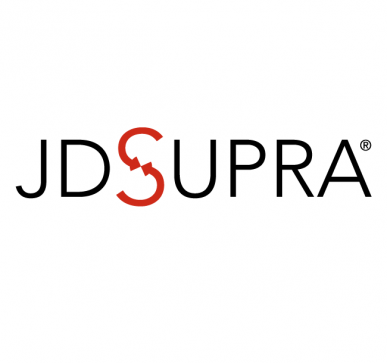Don’t Let The I.R.S. Define Your Conduct As Willful, or Else… was published by JD Supra on 6/1/16.
Something that most of us don’t realize is that Internal Revenue Service has stated that the taxpayer is responsible to learn IRS requirements within the historic U.S. framework of a voluntary reporting system.
The IRS commissioner stated: “Our tax system is set up in such a way that taxpayers fill out their own returns. This self-assessment system reflects the fact that it is the taxpayer, and not the IRS, who possesses all of the information relevant to tax liability.”
Bearing all this in mind, be aware that your actions may create the difference between an innocent mistake and one that is willful. The word willful makes a big difference at the IRS.
The definition of willful is deliberate, voluntary or intentional as well as unreasonably stubborn or headstrong; self-willed. Willful suggests a stubborn persistence in doing what one wishes, especially in opposition to those whose wishes or commands ought to be respected or obeyed — a known legal duty. Part 4 of the Internal Revenue Manual, or IRM, addresses the Bank Secrecy Act in Chapter 26, Section 16-Foreign Bank Account Report, FBARs for short, and goes into several examples of willfulness.
According to the IRM, “Willfulness is shown by the person’s knowledge of the reporting requirements and the person’s conscious choice not to comply with the requirements.”
A good example of willful and nonwillful can be analyzed with foreign accounts. The IRS has a streamlined disclosure program that applies only to nonwillful, noncompliant activity. However, if a taxpayer’s noncompliant activity was willful, the IRS instructs the taxpayer to go into the offshore voluntary disclosure program, or OVDP, instead. The OVDP is considerably different than the streamlined program, primarily due to the nonwillful versus willful activity.
The OVDP requires up to eight amended tax returns and eight FBARs. You pay taxes, interest and a penalty on what you owe. To top it off, you pay a penalty of 27.5 percent of the eight-year high point value of your offshore assets. For some named banks, you pay 50 percent.
The Internal Revenue Manual also states: “Willfulness can rarely be proven by direct evidence since it is a state of mind. It is usually established by drawing a reasonable inference from the available facts. The government may base a determination of willfulness on inference from conduct meant to conceal sources of income or other financial information.”
In fact, there are documents that are helpful in establishing willfulness that are specifically highlighted in the manual, including copies of statements for the foreign bank accounts; notes of an examiner’s interview with the foreign account holder about a taxpayer’s foreign accounts and correspondence with the account holder’s tax return preparer that may address the FBAR filing requirement; documents showing criminal activity related to the nonfiling of the FBAR or noncompliance with other BSA provisions; promotional material from a promoter or offshore bank; statements for debit or credit cards from the offshore bank that for example reveal the account holder used funds from the offshore account to cover everyday living expenses while concealing the source of the funds; copies of any FBARs filed by the account holder; copies of information document requests with requested items that were not provided highlighted along with explanations for why the requested information was not provided; copies of debit or credit card agreements and fee schedules with the foreign bank, which may show a significantly higher cost than typically associated with cards from domestic banks; copies of any investment management or broker’s agreement and fee schedules with the foreign bank, which may show significantly higher costs than costs associated with domestic investment management firms or brokers; a written explanation of why the FBAR was not filed; copies of any previous warning letters issued or certifications of prior FBAR penalty assessments; and an explanation in the work papers for why the examiner believes the failure to file the FBAR was willful.
Don’t forget that conduct is also a determinant if a person is trying to conceal.
The following activities can be interpreted as willful:
• Moving money from one bank to another,
• Making cash deposits and cash withdrawals,
• Instructing your bank not to send you statements,
• Using another passport,
• Filing out some forms and not others,
• Reporting one account and not others,
• Setting up trusts and corporations,
• Visits in person,
• Using code words in communications,
• Not telling your tax return preparer or accountant
Actually, the IRS expects that a person with foreign accounts reads government tax forms and is familiar
with instructions. The Panama Papers uncovers the tip of an iceberg for misunderstood offshore structures that could actually be legal in multiple jurisdictions. That said, the U.S. and other jurisdictions have provided a number of public announcements and warnings regarding the illegal uses of what could otherwise be legitimate business structures. From the U.S. perspective, FATCA (now 6 years old) has enlisted banks around the world to report on reportable U.S. taxpayer owned and controlled bank accounts. Non–US Financial Institutions around the world must disclose their U.S. account holders, or risk being blocked out of the U.S. financial system, and pay penalties. IRS has been stern in its warnings to offshore account holders to
disclose their reportable controlled accounts before it is too late. Based on its IRS provided information, the U.S. State Department is now required to revoke or deny a passport to a U.S. taxpayer that has a U.S. tax lien composed of interest, penalties and income taxes in excess of $50 thousand. While it is not illegal to have offshore accounts, or use offshore business structures, not reporting their existence and earnings is illegal under U.S. tax law. The game is almost over for those who use these vehicles, and are non-compliant regarding reportable income and reportable accounts. The moment to comply is now.





